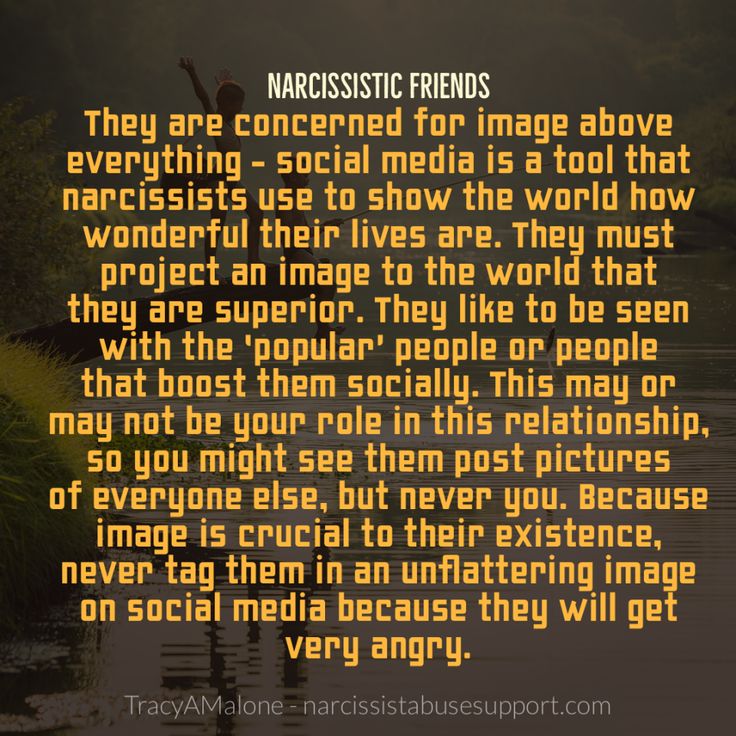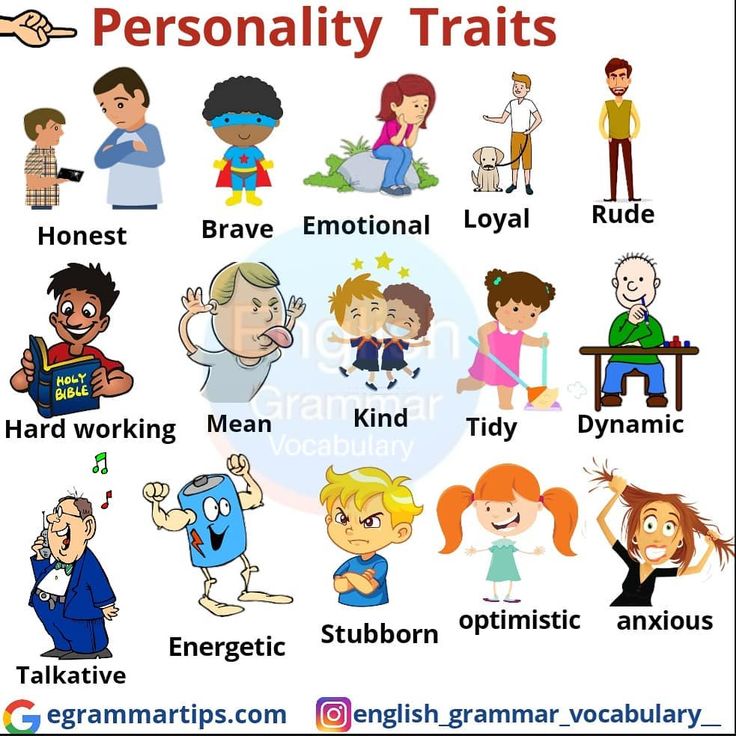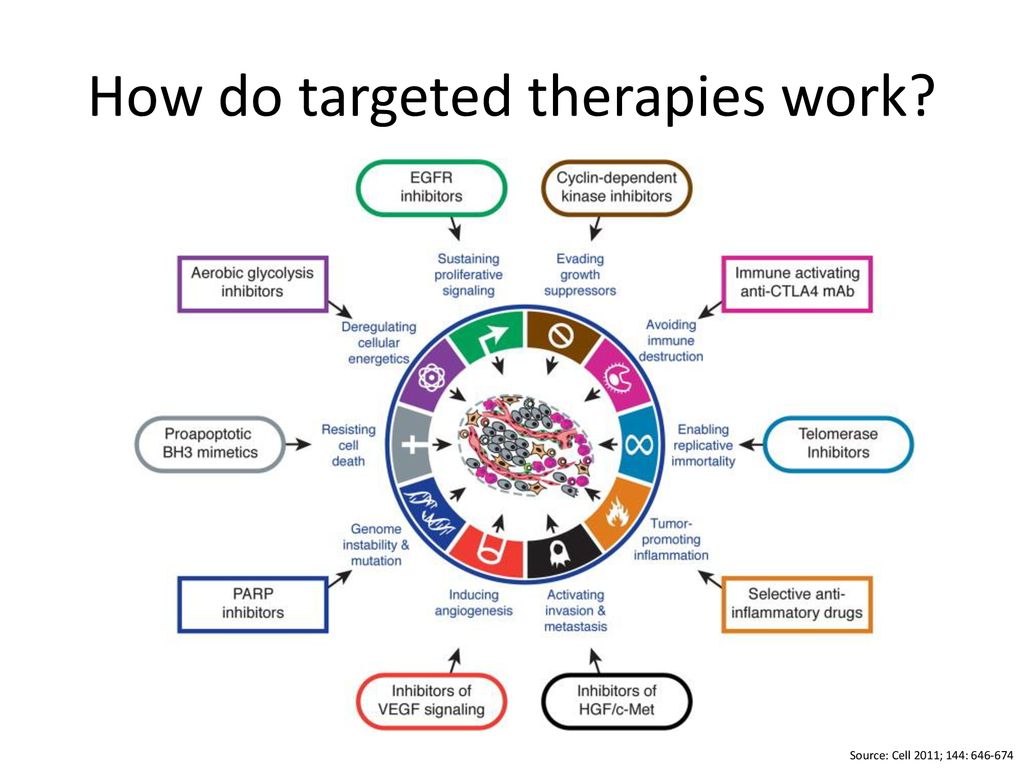How to deal with a narcissistic son in law
How to Deal with a Narcissistic Son in Law?
Last Updated on August 15, 2022 by Alexander Burgemeester
Pretty much every parent believes that no one is good enough for their daughter. That’s not to say you can’t have a cordial relationship with your son-in-law, but no one is good enough for your baby girl.
But what if he’s not just “not good enough” but is actually terrible for your daughter?
What if he’s a narcissist that is emotionally abusing your daughter and possibly grandkids?
What if he’s slowly destroying your relationship with your daughter? You’d want to do something, right? How to deal with a Narcissistic Son in Law?
Table of Contents:
- Signs of a Narcissistic Son in Law
- How to deal with a narcissistic son in law?
- How to support your daughter?
- Getting the Narcissist our of your life
Dealing with a narcissist is never easy, but when the narcissist is your son-in-law, the life-long partner of your daughter, things get a whole lot more complicated.
You can’t take any direct action; you can’t make a clean break from him without breaking off contact with your daughter.
There’s always the risk that anything you say or do will backfire, and push your daughter further away.
You’ll have to try a subtler approach that carefully examines the harm he’s doing to your daughter and your relationship with her.
You’ll need to know these things to form a plan for getting you, your daughter, and any grandkids away from your narcissistic son-in-law.
Do you have a Narcissist in the family?
Signs of a Narcissistic son-in-law
We all know what a narcissist looks like, right? Not necessarily. Some narcissists are the attention-seeking life of the party, but others glob on to just one person – your daughter in this case, extracting all of the attention and emotional support that he requires.
What’s important for these subtle narcissists is their control over someone.
They need to manipulate this person’s perception, providing the narcissist with the feelings of power needed to fill their emotional black hole.
There are several techniques that your son-in-law will use to control your daughter and grandkids that are surefire signs of narcissism. Still, the most common ones are triangulation, manipulation, and gaslighting.
Triangulation
Do you feel like your narcissistic son-in-law is pitting you against your daughter?
Maybe he tells you something hurtful that she’s said about you, hoping to get a recreation (that he can then use to hurt her).
This is triangulation in action, where a narcissist sows discord between two people so as to get attention from both of them.
An easy-to-understand example is when a narcissistic parent has two children and the parent treats one of them as if they can do no wrong and the other as if they can never do anything right.
Naturally, this causes the poorly treated child to resent the other, rather than the parent who is causing all of this tension.
Even the well-treated child comes to resent the other as they become uncomfortable with their own positive situation.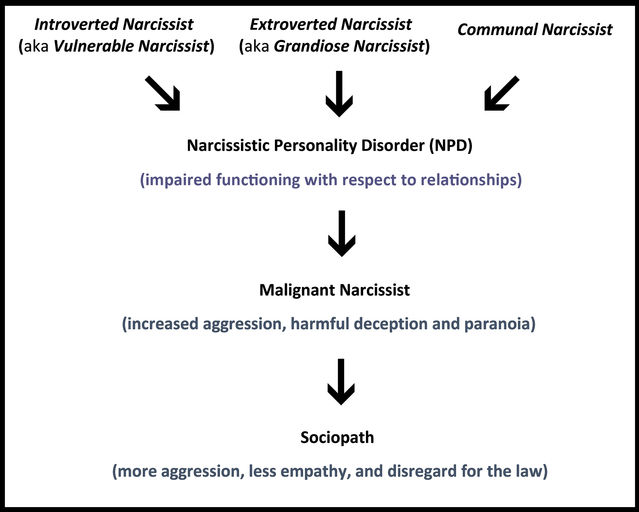
In the case of a son-in-law, you might not believe this strategy would work.
You obviously have much greater affection towards your own child than towards the son-in-law, but if he can control how close you and your daughter are, it gives him the same feelings of power through manipulative tactics.
Manipulation
Your narcissistic son-in-law is most likely a master manipulator. He knows just what to say and do to put your daughter off balance.
At least at the beginning of a relationship, many narcissists bombard their victim with love and affection, making the victim believe that the narcissist would never hurt them.
Later on, he might give backhanded compliments or say hurtful things, then when your daughter gets upset, say he was only joking.
The narcissist does these things because he wants to remain in control. When a narcissist is no longer able to manipulate their victim they lose control and panic.
Some fly into a narcissistic rage, saying anything they can to crush their victim.
Others turn to mutual friends and family, starting a smear campaign to turn others against their victim. Some just walk away, hoping it will force their victim to chase after them, groveling for forgiveness.
A narcissistic son-in-law might also try to manipulate you using similar tactics.
Though a more overt narcissist might even take you aside and tell you that they can force your daughter and grandkids to cut off contact with you.
It’s such blatantly cruel behavior that your daughter might not even believe you if you told her about the conversation – remember, he’s been crafting an idealized image of himself with her for a long time.
Gaslighting
One of your worst feelings is questioning your perception of reality.
When you’re being gaslit, you don’t trust your senses and recollection and end up relying on others to recall everyday events. This provides a narcissist with immense power.
Narcissists frequently gaslight their victims by distorting the truth, telling people that situations unfolded in ways that make them look like the victim rather than the aggressor.
The narcissist makes these claims with such confidence that the people around them question whether they’re misremembering events.
Your narcissistic son-in-law may even use your age against you, causing you to think that your memory is slipping as time goes on.
Why do Narcissistic Son-in-Laws Keep our Daughter and Child Away from Us?
One of the most important things to understand about narcissists is that their behavior comes from a position of weakness.
They have very little ability to regulate their sense of self worth, needing constant affirmation of their superiority.
Isolated your daughter from other family members lets him control her perceptions. If she never speaks to her friends or family, they can’t tell her what a monster her husband is.
How to Deal with a Narcissistic Son in Law?
Most likely you can’t stand a single minute around your narcissistic son-in-law, but your adult child has chosen him.
If you want to spend any time with your daughter, you’ll need to learn how to spend time around him in a way that isn’t psychologically damaging for you and doesn’t give him ammunition to harm your relationship with your daughter.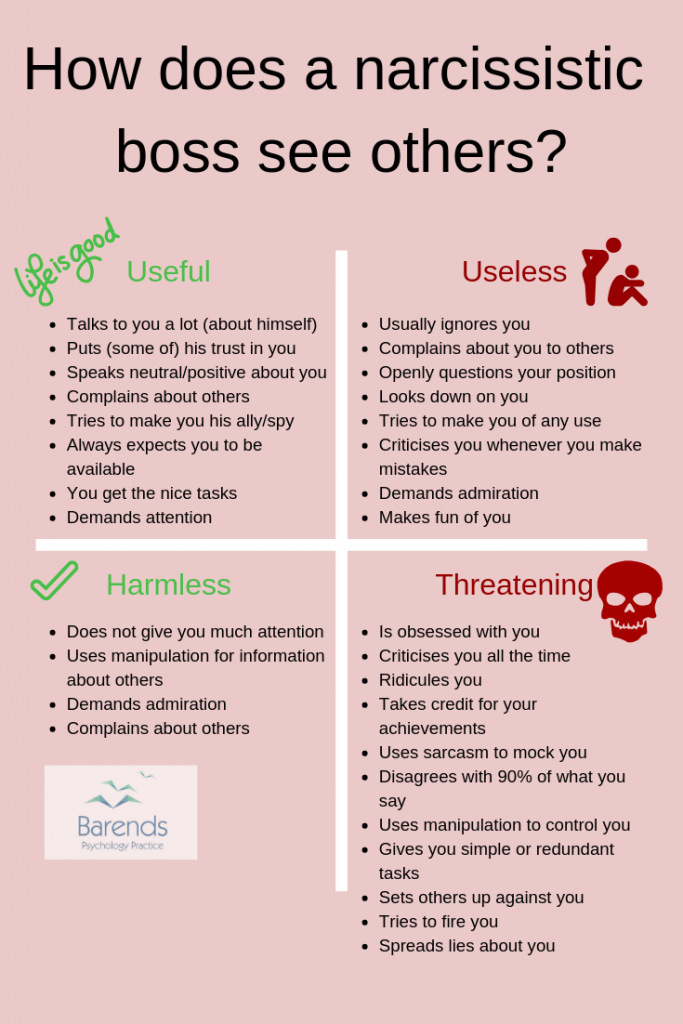
Let Him Believe He’s Got the Upper Hand
This next piece of advice is hard to swallow – you need to let the narcissistic son-in-law feel like he’s winning at all times. You must let him feel in control of the situation.
This is incredibly counter-intuitive, you feel like you should do everything in your power to stop him from manipulating your daughter.
Unfortunately, you aren’t in a position to do that. Your daughter needs to see him for who he truly is and be ready to walk away from the relationship.
Until then, any efforts you make to reveal his narcissistic nature will be turned against you. Let him dig his own grave with her – she’ll eventually see his negative behavior for what it is.
Feed His Ego Occasionally
This one feels even worse than the last, but narcissists just want attention and admiration. If you can give that to them every once and a while by stroking their ego, your relationship with him will be better.
That’s not to say you need to fall into the same pattern with him that your daughter has, just give him a compliment every once and a while.
How Can You Support Your Daughter Who is Married to a Narcissist?
The sad fact is that you cannot intervene and separate your daughter from her narcissistic husband.
Unless she has already decided to walk away from this relationship, your intervention will undoubtedly backfire and she’ll probably cut off contact with you.
Instead, you need to take a support role, helping her make the right decisions, but only when she initiates them. These are just a few of the ways you can help your daughter through her journey of walking away from the narcissist.
Let Your Daughter and the Grandkids Initiate Contact
If you’re always calling your daughter or the grandkids, it makes your narcissistic son-in-law feel like he’s not in control. He feels like you’re intruding on his life and turning everyone against them.
He’ll use manipulation and triangulation to turn your daughter and the grandkids against you to regain his power.
A better option is to let your daughter and the grandkids know that they can call you anytime and that you’re always available to talk.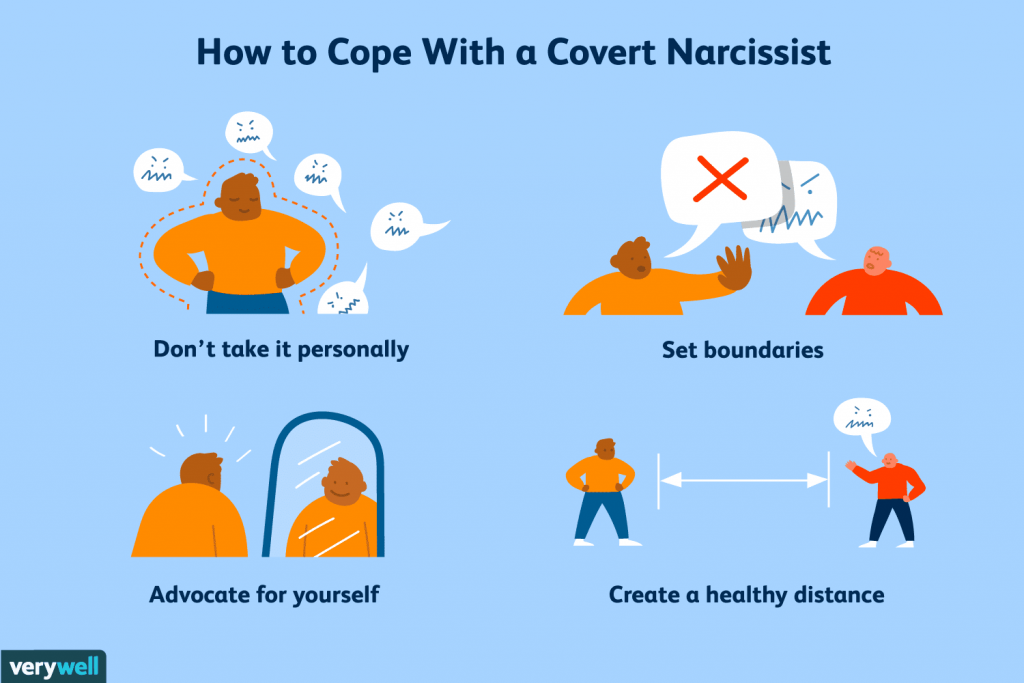
Your narcissistic son-in-law will have a more difficult time turning your daughter and grandkids against you when you’re not the one initiating contact.
Don’t “Enlighten” Her About Her Situation
Telling your daughter that she is with a narcissist and needs to get away is a surefire way to ruin your relationship with her.
If she’s not ready to see who he is and the damage he’s done with his narcissistic abuse, you telling her won’t do any good.
Narcissists do an excellent job at grooming their victims, intermittently showering them with love and making them feel that any negative behavior is the victim’s fault.
Telling her how terrible her partner is will most likely result in defensiveness. She might say things like “you don’t know him like she does” or blame herself for the son-in-law’s bad behavior.
Give Her Space to Share
Instead of telling her that she’s in a bad relationship and needs to get out, wait for her to share. She may be feeling unsure of her feelings, wondering how she got into a relationship with such an abusive person.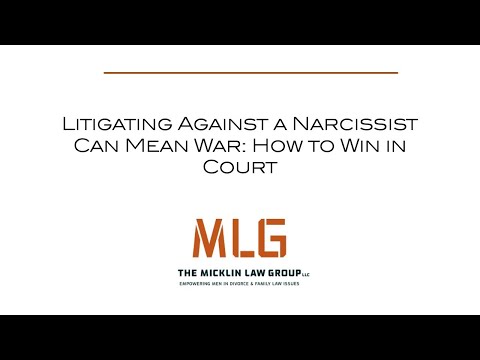
Validate her feelings and tell her that you will always be there for her when she wants to talk. Opening up about the abuse should help her come to her own conclusions about her narcissistic partner.
Help Her to Make a Plan
This is a plan for daughters that are thinking about exiting the relationship and are worried about staying safe.
If your narcissistic son-in-law senses that your daughter is leaving him, there’s a good chance he could enter a narcissistic rage. His ego is deeply bruised, and he’ll try to regain his reputation by hurting others.
Let your daughter know that she always has a safe place to stay with you. Explain how you can help her through any legal proceedings and what steps you’ll take to protect your grandkids, if you have any.
Be There for Her After a Discard
Your daughter is married to the narcissist, so there’s a certain level of commitment involved, but most narcissists will make some attempt to discard their partner when they’re no longer receiving the required level of narcissistic supply. Often this takes the form of cheating and emotional distancing, but he could also initiate a divorce.
Often this takes the form of cheating and emotional distancing, but he could also initiate a divorce.
If that happens, your daughter will either feel relieved or completely crushed. If it’s the former, help her to understand that narcissists frequently return to their discarded partners when they need a boost of supply.
In order to stay strong when he returns, she might need your support.
On the other hand, if she’s shattered by the discard, you’ll have to walk a tightrope in telling her it’s for the best without incurring the problems mentioned earlier of disparaging her narcissistic partner.
Getting the Narcissist Out of Your Life
Extricating your narcissistic son-in-law from your daughter’s life and yours will not be easy. There’s very little that you can do besides recognize his narcissistic tendencies and learn not to aggravate them.
That sounds like giving in to him, but ultimately, this relationship was your daughter’s choice and it’s very unlikely that you can sway her from that choice without incurring her anger and the narcissist’s.
She needs to come to her own conclusions about her husband and you can be supportive of her on that journey without interfering.
Our cold, narcissistic son-in-law has left our daughter lost to us. How can we get her back? Ask Ellie
Relationships
Advice
If you want to try to reconnect with your daughter, writes advice columnist Ellie, tell her that you’re sorry that you disagreed with her and try to re-build the relationship slowly — without judgment
By EllieAdvice Columnist
Sat., Oct. 31, 2020timer3 min. read
Q: We are the parents of a 37-year-old married daughter with three preschool children. She and her family live in our neighbouring country.
She met her husband online while she was in college there. He’s 12 years older, and while courting her, he was going through a devastating divorce.
His child from that marriage was but weeks old when his wife filed for divorce, which eventually bankrupted him.
We weren’t thrilled with this situation for our daughter, but kept it to ourselves, although she “knew.”
He’s a very hard working, responsible man, however very narcissistic, in our opinion. He is, and has been, very cold towards us, although they live in a house we paid for, and we’ve been very supportive in every way.
Our daughter, with whom we were very close before the marriage, is lost to us.
She’s gradually become a mirror image of her husband. She began cutting us out of her life and personal sharing almost as soon as she met him.
She has a medical background yet has embraced anti- vaccination to the extreme and this has morphed into many other conspiracy theories.
We’ve told her we don’t believe in any of it but have not gone to great lengths to try and change her mind.
Yet, she’s taken it as a personal affront that we won’t go down the same road and seems to have written us off.
There’s some communication but zero closeness.
What to do? We already worked with a family therapist who’s declared us to be kind, loving parents, and concluded that the issue isn’t with us but with her and her husband.
Devastated
A: Parental or grandparent alienation is deeply hurtful, and it’s often very hard to understand how or why it happened.
A look at the cold facts may help:
She’s your only child, with no siblings for her to bounce things off regarding “issues” she has with mom or dad.
There’s only her husband, 12 years older than her, who’s distant from you.
He’s a hard-worker, busy, narcissistic (even undiagnosed it often translates to someone believing they’re “always right”).
Your daughter’s a professional woman with three very young kids. Also, very busy. Meanwhile, she’s found strong support among antivaccination adherents. That’s her choice and obviously his too.
Even your minor disagreement put her off. She’s under strong influences from her husband and a belief system of conspiracy theories which have a strong following in some places.
You may be surprised at my advice: If you want to try to reconnect with your daughter, tell her that you’re sorry that you disagreed with her.
Say that you respect that they are the parents and will make their own choices for raising their children.
By doing that, you take away the opportunity that they had, to disengage from you.
There’s still hope here for a relationship of sorts with her through communication, so long as you show interest only, and don’t challenge her. Or he will likely cut you off completely.
Meanwhile, build slowly toward having chats with your daughter that are relatively relaxed and supportive, even if brief.
If you can talk together when she’s relaxed, perhaps while she’s out walking, you can catch up on what’s happening in her life, without any judgment.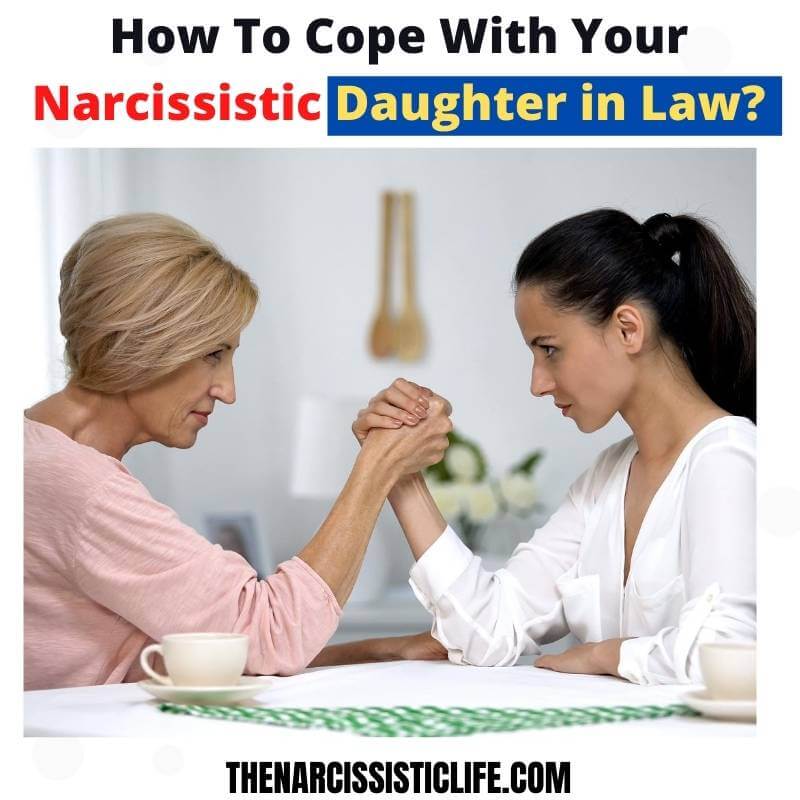
When travel is permitted again — and this may not be wise until you’ve had the anti-COVID-19 vaccine that they won’t take — then, make every effort to visit so you can see your grandchildren.
Ellie’s tip of the day
Apologize for a past disagreement while communication is still possible, to try to avoid total estrangement.
Ellie Tesher is an advice columnist for the Star and based in Toronto. Send your relationship questions via email: [email protected].
SHARE:
Report an error
Journalistic Standards
About The Star
JOIN THE CONVERSATION
Conversations are opinions of our readers and are subject to the Code of Conduct. The Star does not endorse these opinions.
Why are mother-in-law and son-in-law in conflict?
Why are mother-in-law and son-in-law in conflict?
Many anecdotes and incredible stories have been invented about the relationship between mother-in-law and son-in-law.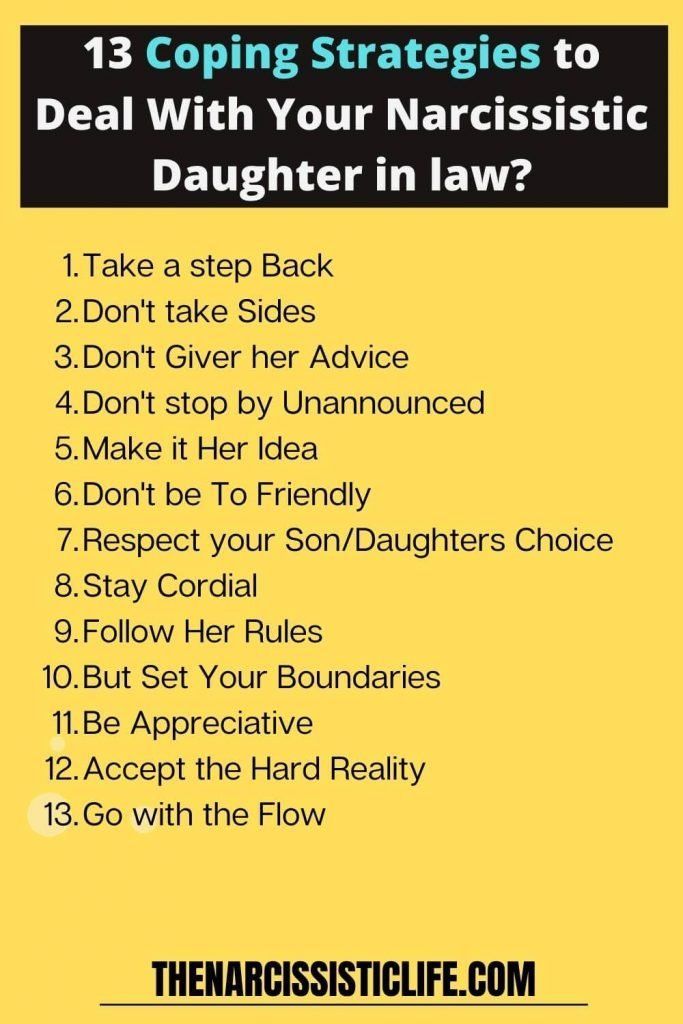 These family members are usually quite difficult to get along with each other. And even if their relationship seems to be even, relatives will not miss the chance to poke each other, make a sarcastic joke or make a remark. Why is this happening, and most importantly - what to do about it?
These family members are usually quite difficult to get along with each other. And even if their relationship seems to be even, relatives will not miss the chance to poke each other, make a sarcastic joke or make a remark. Why is this happening, and most importantly - what to do about it?
Delayed separation
If the daughter never passed the stage of separation from her mother, and the mother could not let her go, then the mother-in-law will always be the third in the newly-made family. She is sincerely convinced that she is trying to help young people, to suggest how they can live from the position of their impressive experience. Moreover, the unseparated daughter also believes in this. And the son-in-law is in the minority when making any important issues, which will naturally hurt his male pride. In such a situation, behavior correction is required for all family members. A mother needs to come to terms with the fact that her daughter is a separate adult with her own life, her daughter needs to learn to take responsibility for her life and decisions, and her son-in-law needs to defend his boundaries. Sign up for a family psychologist in Moscow here. nine0003
Sign up for a family psychologist in Moscow here. nine0003
Mother-in-law narcissist
A narcissistic personality must always be in the first place, the most visible and the most important. Such a mother will subconsciously compete with her daughter for the attention of her son-in-law, seeking his attention in various ways. These are the mothers-in-law who feed their sons-in-law with delicious pies, come to visit whenever they want, actively participate in all conversations and, in general, try to constantly remain in sight.
Or a loner
Those mothers-in-law who have lost their husbands can also be intrusive. They perceive the daughter's man as their own and begin to give him various tasks:
- make repairs;
- take-bring;
- buy medicines;
- meet a girlfriend.
As in the previous cases, there is only one way to effectively deal with such behavior - by building and respecting personal boundaries.
Blurred boundaries due to living conditions
In our country, it is not uncommon for a couple to live in their parents' apartment.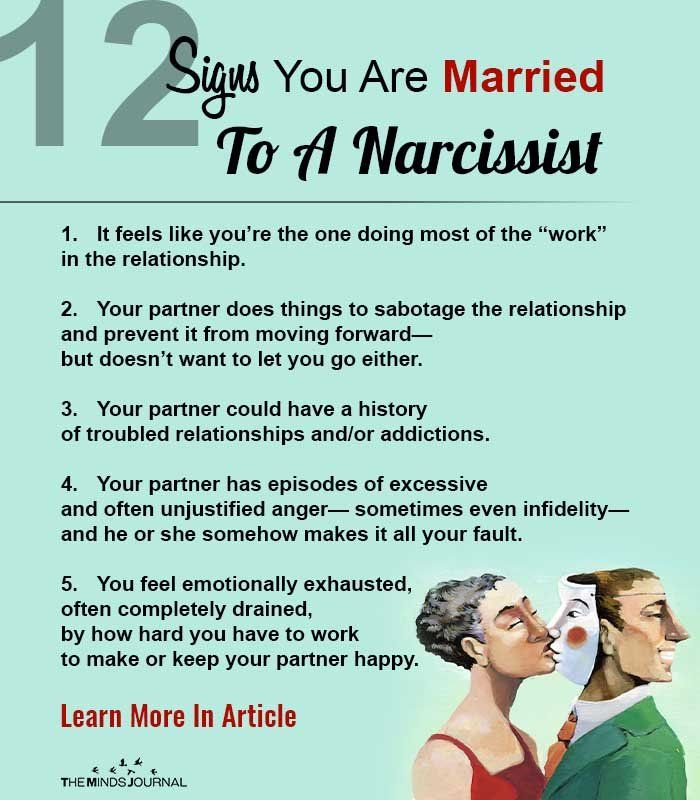 In some cases, the girl's parents can even financially provide for a young family. In such a situation, one should not be surprised if the mother-in-law or father-in-law will dictate their own rules, require help with housework or other matters. It will be difficult to draw boundaries here until the young family gains independence. nine0003
In some cases, the girl's parents can even financially provide for a young family. In such a situation, one should not be surprised if the mother-in-law or father-in-law will dictate their own rules, require help with housework or other matters. It will be difficult to draw boundaries here until the young family gains independence. nine0003
How to minimize conflicts?
Whatever side of the conflict you are on, you should not act from the position that you are right and your opponent is bad. So you only shift the responsibility to the other side and achieve nothing. This is obviously a losing start, as it only leads to the aggravation of the situation. You need to learn to accept each other's features or simply ignore them, depending on the situation. It is important for a daughter to separate from her mother, and also to explain to her the importance of keeping a distance. Each family should have its own boundaries, beyond which no one can access, except for the husband and wife.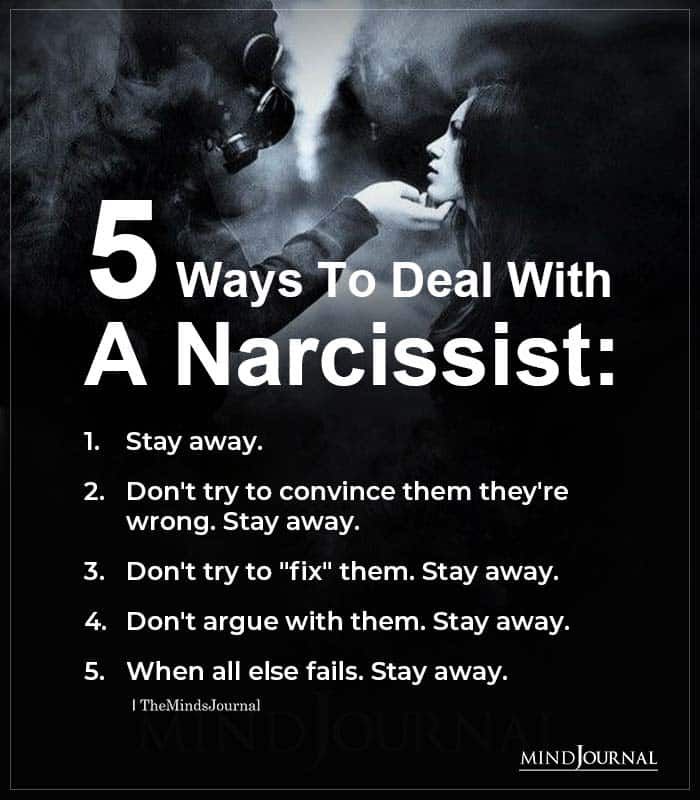 Develop your communication rules and communicate them to others. Often conflicts arise not from malicious intent, but because of omissions. Both mother-in-law and son-in-law are faced with new roles in their lives, they may simply not know how to behave correctly or have different examples of building such relationships. nine0003
Develop your communication rules and communicate them to others. Often conflicts arise not from malicious intent, but because of omissions. Both mother-in-law and son-in-law are faced with new roles in their lives, they may simply not know how to behave correctly or have different examples of building such relationships. nine0003
As advertising
12/13/2021
Evil flowers. How to live with a narcissist - Daria Varlamova - How to live - Site materials - Snob
The Western world trembles before cold-blooded sociopaths, and in the domestic hit parade of antiheroes with mental problems, the narcissist is still confidently leading. Most often, this is a narcissistic mother, because of which the child’s whole life then went downhill, or a lover (much less often a beloved), who lured her to the brilliance of her charisma, and then morally gutted and left with nothing. What is this disorder, how does it arise, and is it as detrimental to others as it is described? nine0003
Vanity Fair
The most characteristic features of a narcissist, which lovers of making diagnoses by profile picture usually stop at, are vanity and narcissism. Other characteristic but less well-known symptoms are lack of empathy, jealousy, exploitative tendencies and desire for power, as well as a sense of being special and requiring special treatment. All these features can manifest themselves in varying degrees - from mild personality specifics to a noticeable pathology - the actual narcissistic personality disorder. nine0003
Other characteristic but less well-known symptoms are lack of empathy, jealousy, exploitative tendencies and desire for power, as well as a sense of being special and requiring special treatment. All these features can manifest themselves in varying degrees - from mild personality specifics to a noticeable pathology - the actual narcissistic personality disorder. nine0003
Given that narcissists are often truly successful and well-loved, their expansion in society can cause a sense of injustice in the more meek, humble, and underappreciated people. It may seem that these narcissistic egoists get too much undeservedly. But at the same time, the inner world of a narcissist cannot be called harmonious. It is difficult to feel stable when your sense of self-esteem is always “outsourced” and depends on other people's assessments.
Shame and devaluation
Why is this happening? Neurobiology on this topic has not yet offered a clear explanation (except for individual studies indicating a lack of gray matter in the brain regions responsible for empathy and emotional regulation), and psychoanalysts, who have developed the topic most deeply, believed that this type of personality is formed due to inadequate an acute reaction to a sense of shame: the worst thing is when people around you consider you bad , and the worst thing that can happen to a narcissist is the public removal of the covers from his apparent ideality and the discovery of his true insignificance (and everything that is not ideal is perceived by him as insignificant). It is widely believed that raising a child to be a narcissist is easiest by constantly pampering him and inappropriately appreciating his talents, but the observations of many psychologists support the effectiveness of the combination of "stormy praise for meeting high standards" plus "rejection for everything that parents consider bad behavior ( especially if this behavior is, in general, natural for a child, for example, pranks)”. Then the baby quickly learns that he is good when he seems good, and no one needs him when he just happens to be himself, with his weaknesses and shortcomings. nine0003
It is widely believed that raising a child to be a narcissist is easiest by constantly pampering him and inappropriately appreciating his talents, but the observations of many psychologists support the effectiveness of the combination of "stormy praise for meeting high standards" plus "rejection for everything that parents consider bad behavior ( especially if this behavior is, in general, natural for a child, for example, pranks)”. Then the baby quickly learns that he is good when he seems good, and no one needs him when he just happens to be himself, with his weaknesses and shortcomings. nine0003
Narcissists, on the one hand, willingly devalue other people's achievements in order to protect themselves from comparison not in their favor, but on the other hand, their own merits are also eternally lacking. Therefore, their apparent complacency is a soap bubble (it is worth bearing in mind rather in order not to be angry at such behavior, and not in order to beat narcissists on the sick: protecting their ideal "I", they are capable of much).
Because of his specific nature, the narcissist is not very capable of truly close relationships: he perceives the partner as a mirror to reflect himself (more precisely, his best sides). Therefore, novels often begin with idealization (“What a delightful trophy that will emphasize my uniqueness!”), And end with disappointment and an attempt to change the partner to suit your growing needs, not really considering the boundaries of his personality. Actually, this is where so many unfortunate love stories come from. On the other hand, it is worth remembering that the narcissist himself is also not easy: it is impossible to relax and show oneself to mere mortals even with a spouse. nine0003
Olga Gumanova, psychologist:
“Next to such a person it is easier for other severe neurotics to survive, for others it is difficult, too cold. Narcissists love to form alliances with schizoids - in such a pair, an extroverted and sociable narcissist can be responsible for relations with the outside world, and the schizoid keeps his own world and the general world of the couple, about which he can fantasize a lot, but he feels good in it. He keeps in silence the image of Narcissus the Magnificent. nine0066
He keeps in silence the image of Narcissus the Magnificent. nine0066
Children of narcissists experience increased psychological stress and often grow up traumatized. Usually, narcissistic parents give birth to children not out of love for children, but as another proof of their success and viability in life. In addition, as in the case of equal partners, such mothers and fathers have a poor sense of personal boundaries and perceive the baby as an extension of themselves, trying to correct his real and apparent shortcomings by any means.
Olga Gumanova:
“Children from narcissistic families can consciously or unconsciously look for the same narcissistic partners, stick to them, become dependent on them, try to overcome their coldness, indifference and contempt, earn love. Where they are rejected, where they are neglected, they are drawn there.”
Types of narcissists
The two main diagnostic manuals of psychiatry—the European International Catalog of Diseases and the American DSM-V (Diagnostic and Statistical Manual of Mental Disorders)—do not classify people with narcissistic disorder. Nevertheless, various psychologists and psychiatrists in their practice periodically identify characteristic types:
Nevertheless, various psychologists and psychiatrists in their practice periodically identify characteristic types:
-
Amorous - a narcissist who asserts himself mainly by seducing others, is prone to dramatic effects and pathological lies.
-
Unscrupulous - combines narcissistic symptoms with features of antisocial disorder. Has vague ideas about morality, likes to dominate and manipulate.
-
Hypersensitive - more thin-skinned and less self-confident, with all the painful narcissistic pride, behaves more timidly and avoids situations where he can be "not on horseback". nine0003
-
Inverted - a narcissist, on the contrary, who does not want to receive universal adoration himself, but to be a faithful vassal of a brighter hero.
Olga Gumanova:
“Inverted daffodils are such “stuck fish”, admirers of talents, adherents of gurus. In fact, they have exactly the same structure of trauma with narcissists, they are also organized personally, but for some reason they deny the narcissistic in themselves and prefer to always be close to someone who allows it to themselves, with whom it can be openly reside. Moreover, “inverted” narcissists can easily be inverted in some respects and classical in others. For example, a woman is a modest housewife, a gray mouse with a brilliant, popular, high-ranking husband. And in relations with her child, she already plays the role of a classic narcissist - the child must meet her requirements, reach out, and she gives or does not give a medal. nine0066
Moreover, “inverted” narcissists can easily be inverted in some respects and classical in others. For example, a woman is a modest housewife, a gray mouse with a brilliant, popular, high-ranking husband. And in relations with her child, she already plays the role of a classic narcissist - the child must meet her requirements, reach out, and she gives or does not give a medal. nine0066
How to get rid of narcissism
Narcissistic disorder is often demonized, narcissism is easily attributed to abusers and manipulators, and it really is part of the so-called "dark triad" - a typical list of personality traits for people prone to malicious behavior. But this does not mean that any narcissist is a cruel tyrant, and his behavior cannot be corrected. If a person realizes that the specificity of his personality creates difficulties for himself and brings pain to loved ones, he can successfully undergo psychotherapy. Drug treatment in this case is not applicable if there are no other comorbid disorders (for example, anxiety or depression). nine0003
nine0003
Olga Gumanova:
“With experience, I am becoming more and more convinced that the “narcissophobia” popular today has no real basis. Any personality disorders and neurotic types of personality organization are not corrected only if a person denies his pain, depression, tries to pretend that everything is fine with him. Narcissists do have more reason to deny problems because, as a rule, they are doing well with their careers and personal lives. Why do I need a psychologist if I have a prestigious position, a high salary and a crowd of fans? nine0066
Now there are 60 percent of narcissists among the clients of psychologists. People come because they are in pain, they have a very disassembled, scattered “I”, they no longer want to endure it and want to change. And they can change if they want.”
How to live next to a narcissist
There is no universal answer to this question - the options will depend both on the degree of the hero's narcissism, and on the type of relationship and your own personality.